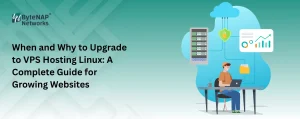Several small and medium businesses are looking for cloud-based solutions to meet their computing needs. There’s no doubt that cloud migration is on-trend and various business organizations are adopting it. The reasons why businesses shift to the cloud can range from increasing the cost and IT efficiency to fostering remote workforces and boost deployment.
Migrating to the cloud can be a challenging process even for the skilled IT team. However, if you have the right plans and checklist, you can minimize the risks and find success.
Hence, we have created a checklist that will help you successfully migrate your business to the cloud.
What is a Cloud Migration?
Cloud Migration is the method wherein the workloads and applications are shifted to the cloud hosting environment. Here, the migration process is to shift conventional web servers or hosting infrastructure into the cloud or moving one cloud to another cloud.
The cloud environment can be a private cloud, hybrid cloud, public cloud, or multi-cloud.
Generally, businesses migrate to cloud infrastructure to manage the expenses on infrastructure or take maximum advantage of new technologies.
Cloud Migration Summary
The process of moving the webserver and other hosting infrastructure to the cloud includes the following processes:
- Carry out an audit, where the exisisting applications, data sets, security should be examined and checked for any privacy risks. If any risk is found, eliminate it before you proced with migration.
- Next step is to pick the ideal cloud infrastructure that meets your business needs. The new cloud environment you choose should have enough storage space and processing power to manage your current workloads and is future ready.
- Consider the security of the cloud and its compliance this includes the policies of cloud hosting provider, where will your data be stored (Is it on public cloud or private cloud), encryption options, permission settings and so on.
Creating a migration project plan is crucial for minimizing the risks involved in cloud migration. Let’s see what the plan includes:
- Make a detailed note of each of the components in your current infrastructure.
- Which of those componets will be migrated in the process and to where?
- What will be the state of the unnecessary assets or surplus infrastructure once the migration completes.
The migration plan should be discussed with the stakeholders and take in the feedback to make any possible changes to the plan.
Benefits of Cloud Migration
There can be multiple reasons to migrate to the cloud, let’s see eight of the most common benefits of migrating to the cloud:
Better Performance and Robust Setup
Cloud environment enables to easily scale new and current environments thereby making the testing and deployment process increasingly adaptive.
Minimize the Overall Cost
With cloud computing, the overall cost is minimized as there is no maintenance cost of infrastructure. Moreover, several cloud providers offer their plans on a pay-as-you-go model. So, you only pay for the resource you use.
Centralized Deployment for Simpler Collaboration
Centralized deployment allows people to collectively work on the same projects.
Numerous Backup Solutions
With cloud computing, you have a plethora of backup solutions that will help your website or application recover in case of a catastrophic failure. Backup is an extremely effective solution especially during a misfortunate event like a system getting hacked or compromised.
Suggested For Further Reading:
- How to Export a WordPress Website?
- How to Backup a WordPress Site in 2021?
Improved Security Features
Most cloud vendors take severe security measures to protect the infrastructure against various cybersecurity threats. They use firewalls to keep out illegitimate traffic from accessing the system, apply security patches for securing against security vulnerabilities.
In-built Status Monitoring
Real-time monitoring of the network. This means watching over the pings, ports, packets, hits, traffic, hacks, or anything else. If any unusual activity is going on your network, you will instantly receive an alert.
Boost the Growth of Organization
Cloud computing allows organizations to easily integrate new acquisitions to current platforms. Additionally, it also helps to scale quickly with the auto-scaling functionality and flexible data management services.
On-Demand Scalability
With a cloud environment, you can easily scale the resources of the server in few clicks. You can increase the server capacity on holidays and big events and also set it back to normal on regular days.
Comprehensive Checklist for Your Cloud Migration Strategy
Now, as you got some idea of how to migrate to the cloud and its benefits. Let’s sketch out the details that are required to carry out the process.
Create a Detailed List of Applications, and Datasets
Ensure that you make a detailed list of all your assets before doing the migration process. This will give you clarity about what needs to be shifted for cloud migration.
Eliminate the Security Risks Before Migration
You must perform an audit to analyze the infrastructure and eliminate the security risks if you find any. Here, the risks can be software or hardware-related.
Before doing the migration process, you need to ask yourselves whether the process will create a risk to data, would you be to continue your business before and after migration?
Plan and Test Cloud Migration Project
Before you perform actual cloud migration, ensure that you test the plan; go through various probable use cases, and optimize it for the preferred results.
Pick the Ideal Cloud Vendor
Picking the right cloud vendor not only makes the migration process simple but also offers cloud scalability, cloud elasticity, and cloud monitoring.
Setting up the new infrastructure is of utmost importance
I hope this article helped you understand our blog post on cloud migration. Additionally, you can opt for cheap cloud VPS plans.








